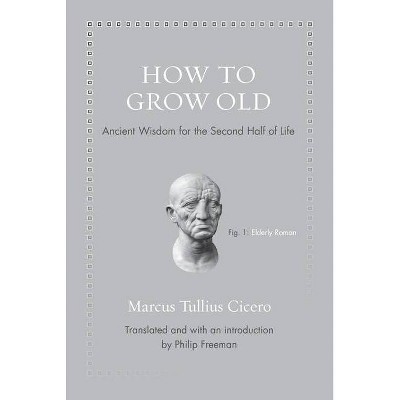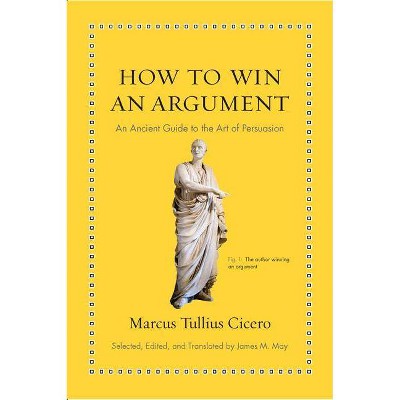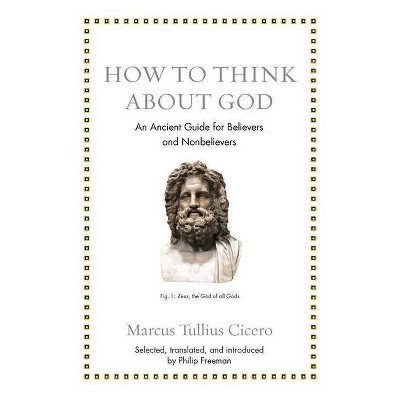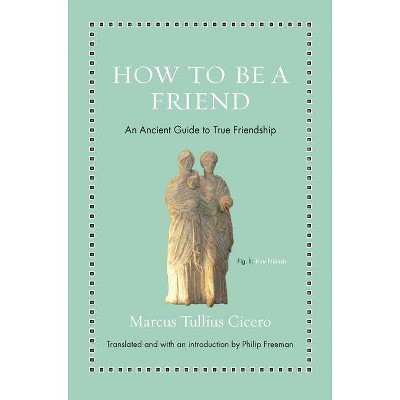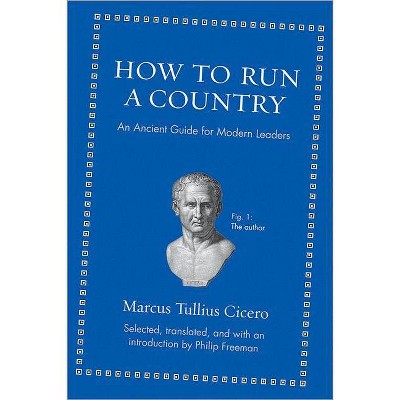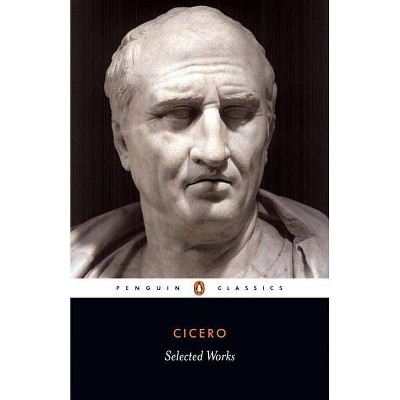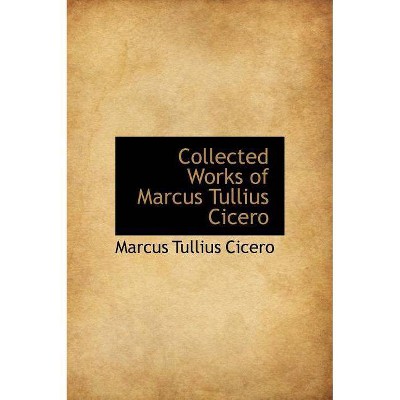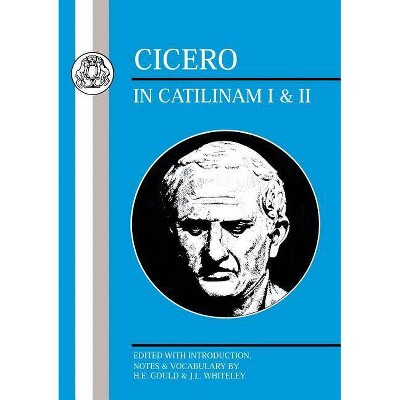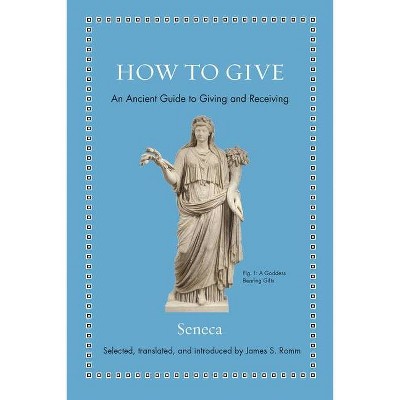How to Tell a Joke - (Ancient Wisdom for Modern Readers) by Marcus Tullius Cicero (Hardcover)
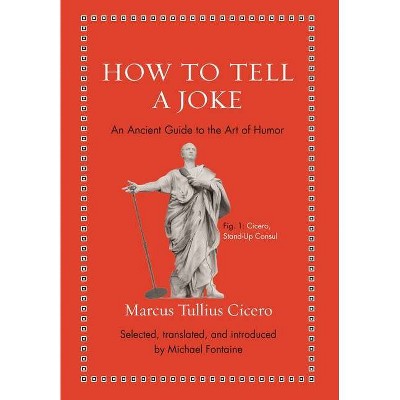
Similar Products
Products of same category from the store
AllProduct info
<p/><br></br><p><b> About the Book </b></p></br></br>"Everyone knows that Marcus Tullius Cicero was one of the great statesmen, lawyers, and effective orators in the history of Rome. But did you also know he was regarded as one of the funniest people in Roman society as well? Five hundred years after his death, in the twilight of antiquity, the writer Macrobius ranks him alongside the comic playwright Plautus as the one of the two greatest wits ever. In this book, classicist Michael Fontaine, proposes to translate selections from Cicero's great rhetorical treatise, On the Ideal Orator (De Oratore). That larger work covered the whole of rhetoric and effective public speaking and debate. However, contained within it, is a long section focused on the effective use of humor in public speaking. In it, Cicero is concerned not just with various kinds of individual jokes, but with jokes that are advantageous in social situations. He advises readers on how to make the most effective use of wit to win friends, audiences, and achieve their overall ambitions. Cicero wants to teach his readers how to tell a joke without looking like a buffoon, and how to prevent or avoid jokes from backfiring. Hence, he does give scores of examples of jokes-some of which are timeless and translate easily, others that involve puns in Latin that challenged the translator's creativity. But overall, this work brings to the fore a little known, but important part of Cicero's classic work."--<p/><br></br><p><b> Book Synopsis </b></p></br></br><p><b>Timeless advice about how to use humor to win over any audience</b> <p/>Can jokes win a hostile room, a hopeless argument, or even an election? You bet they can, according to Cicero, and he knew what he was talking about. One of Rome's greatest politicians, speakers, and lawyers, Cicero was also reputedly one of antiquity's funniest people. After he was elected commander-in-chief and head of state, his enemies even started calling him "the stand-up Consul." <i>How to Tell a Joke</i> provides a lively new translation of Cicero's essential writing on humor alongside that of the later Roman orator and educator Quintilian. The result is a timeless practical guide to how a well-timed joke can win over any audience. <p/>As powerful as jokes can be, they are also hugely risky. The line between a witty joke and an offensive one isn't always clear. Cross it and you'll look like a clown, or worse. Here, Cicero and Quintilian explore every aspect of telling jokes--while avoiding costly mistakes. Presenting the sections on humor in Cicero's <i>On the Ideal Orator</i> and Quintilian's <i>The Education of the Orator</i>, complete with an enlightening introduction and the original Latin on facing pages, <i>How to Tell a Joke</i> examines the risks and rewards of humor and analyzes basic types that readers can use to write their own jokes. <p/>Filled with insight, wit, and examples, including more than a few lawyer jokes, <i>How to Tell a Joke</i> will appeal to anyone interested in humor or the art of public speaking.</p><p/><br></br><p><b> Review Quotes </b></p></br></br><br>Wonderful translations. . . . [Fontaine's] translations make the Latin very accessible to the modern reader who might not have any skill in translation at all. This modern translation also makes the language of Cicero and Quintilian come alive to the reader. . . .it gives you a glimpse of the Roman sense of humour, barbs, quips and the workings of extraordinary jurists in a court playing to a captive audience. . . . [A] wonderful book.<b>---Dr. LF Ivings, <i>Journal of Classics Teaching</i></b><br><br>Elegant. . . . Fontaine calls Cicero's 'On the Ideal Orator' a 'masterpiece' and Quintilian's 'The Education of the Orator' 'a master textbook on public speaking.' Neither is an understatement.<b>---Joseph Epstein, <i>Wall Street Journal</i></b><br><br>[<i>How to Tell a Joke</i>] will make you happier, it will make you better read, and, I'm pretty confident, it will make you laugh.<b>---Ben Potter, <i>Classical Wisdom</i></b><br><br>Michael Fontaine's lively new translation of Cicero's ancient text on humor, <i>How to Tell a Joke</i>, amuses as well as instructs.<b>---Linda B. Glaser, <i>Cornell Chronicle</i></b><br><p/><br></br><p><b> About the Author </b></p></br></br><b>Michael Fontaine</b> is professor of classics at Cornell University. His books include <i>How to Drink: A Classical Guide to the Art of Imbibing</i> (Princeton) and <i>The Oxford Handbook of Greek and Roman Comedy</i>.
Price History
Cheapest price in the interval: 8.39 on November 8, 2021
Most expensive price in the interval: 9.29 on October 23, 2021
Price Archive shows prices from various stores, lets you see history and find the cheapest. There is no actual sale on the website. For all support, inquiry and suggestion messagescommunication@pricearchive.us
